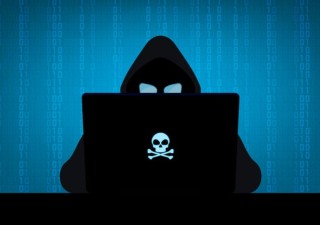Indonesia Blocks Illegal File-Sharing Websites
18 November 2015

The Indonesian government has ordered the country’s internet service providers to stop users from accessing both major and minor illegal file-sharing websites.
Amidst global pressure for more IP protection, the government began to take initiative in fighting piracy online several years ago. With web-blocking technology in place for some time already, the Ministry of Communication and Informatics (MCI) published a list of illegal sites in late August for the internet service providers to block.
The list includes both the well-known ones – such as The Pirate Bay and IsoHunt.to – as well as sharing sites that are used domestically. The MCI said that its top priority is to protect Indonesia’s film industry, so any illegal film-downloading sites are subject to the blockade.
If copyright owners find any infringing sites, they can file complaints to the MCI, where the Director General of Intellectual Property will be empowered to issue web-block orders, likely within a day.
Users are able to easily circumvent the blockade by changing the default domain name system (DNS) into the public DNS and/or using a proxy service, says Willy Isananda Tunggal, an associate at Iman Sjahputra & Partners in Jakarta. “New illegal sites will also show up.”
That might not be the case in the future, because the government is planning to invite all of the local internet service providers to cooperate in developing an alert system of illegal file-sharing, Tunggal says. “With the system, if someone conducts an illegal download, there will be a warning on the screen indicating that such act is illegal and subject to legal penalty. If the download is still conducted after the warning, the internet speed will then be automatically decreased significantly.”
The current regulations are not sufficiently clear or effective in punishing people changing the DNS or using a proxy service. The Electronic Information and Transactions (EIT) Law prohibits any person who accesses computers and/or electronic systems of other persons without authority in any manner whatsoever with a legal sanction up to six years of imprisonment and/or fine up to Rp600 million (US$41,300). Those who without authority commit any acts resulting in faults of electronic system could face up to 10 years in prison and fine up to Rp10 billion (US$690,000), Tunggal says. “There are still many disagreements regarding the effectiveness of the EIT Law. For instance, the words ‘without authority’ trigger a lot of debate among experts. Is using another DNS or a proxy service regarded as having no authority? We may view that the proxy service is intentionally created for people to use such service, so people who are using such service are authorized to do so.”
Web-blocking is a widely-used antipiracy measure in many countries, especially in Europe, but the judicial process tends to be involved before a web-blocking order is issued to ensure fairness. In Indonesia, this step is missed.
“Criticism or protest against the blockade is almost unheard of. The Indonesian law is dynamic, but not sufficient to nurture the rapid development of the IT aspect, specifically on the illegal file-sharing issues. The legal proceeding can be very lengthy and the outcome can be unpredictable, let alone the issue of corruption within the legal system – this is why a remedy seeking from judicial process is often avoided,” Tunggal says. “Even if the MCI can initiate the blockade without going through complex legal proceedings, many new sites can still appear, be it by the ‘usual suspects’ or the newcomers, so if the judicial process steps in, IP infringement could further increase.”
Ideally, the usual practice from the West is better in terms of ensuring fairness and protection of equitable legal rights, but our situation is simply not suitable, Tunggal says. “If Indonesia follows the West, it will impact, directly or indirectly, IP enforcement, especially in the music and film industries.”
Studies have shown that over 2.8 billion songs have been downloaded illegally in Indonesia annually, at a cost to the music industry of Rp12 trillion (US$845 million) each year.
So is web-blocking the ultimate panacea of online piracy? “Nope, by blocking the sites, the MCI will only delay the problems instead of solving them,” Tunggal says. “The best efforts instead include enhancing public education regarding illegal file-sharing; improving Law No. 11 of 2008 Concerning Information and Electronic Transactions, Law No. 28 of 2014 Concerning Copyright, and Law No. 36 of 1999 Concerning Telecommunications to better regulate and not let infringers get away easily; and educating the enforcement authorities.”
In fact, the government has already put a lot of effort into educating the public, but the approach is not right, Tunggal says. “We have seen many seminars, symposiums and events held in universities, governmental sites and private companies, but such effort does not really aim at the major players of illegal file-sharing,” he says. “Indonesia needs education through media – radio, television and social media. That way, it would reach a lot more people and a bigger impact [could be] expected. Despite the greater budget, this change is essential as a form of government’s responsibility to its people.”
A recent MCI survey found that there are more than 73 million internet users in Indonesia, or approximately 30% of the country’s population. Almost 60% of of users are between ages 12 and 34, and each spends five hours online through a laptop or a desktop daily, as well as two hours through smart phones and other mobile devices.






